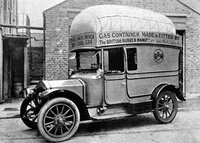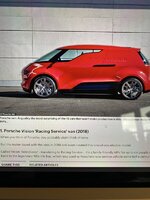Do I order a new T6 now ( for delivery halfway through next year) or do I hold out for a hybrid/electric T7 sometime in the future? A few things going through my mind are the value of my current vehicle, which is a plus, but the resale value of a T6.1 in 5-6 years time? which is.......well, who knows! In 2025-6 will I be able to sell on my old tech T6.1? ( with it's leaking windows) or will I be left with a big lump of metal no one wants anymore?
A new T6 is a massive expense, but that has always been offset by the excellent resale value, but if that resale value is no longer a positive, what do you do? I know none of you have a crystal ball, but your thoughts please.
A new T6 is a massive expense, but that has always been offset by the excellent resale value, but if that resale value is no longer a positive, what do you do? I know none of you have a crystal ball, but your thoughts please.



